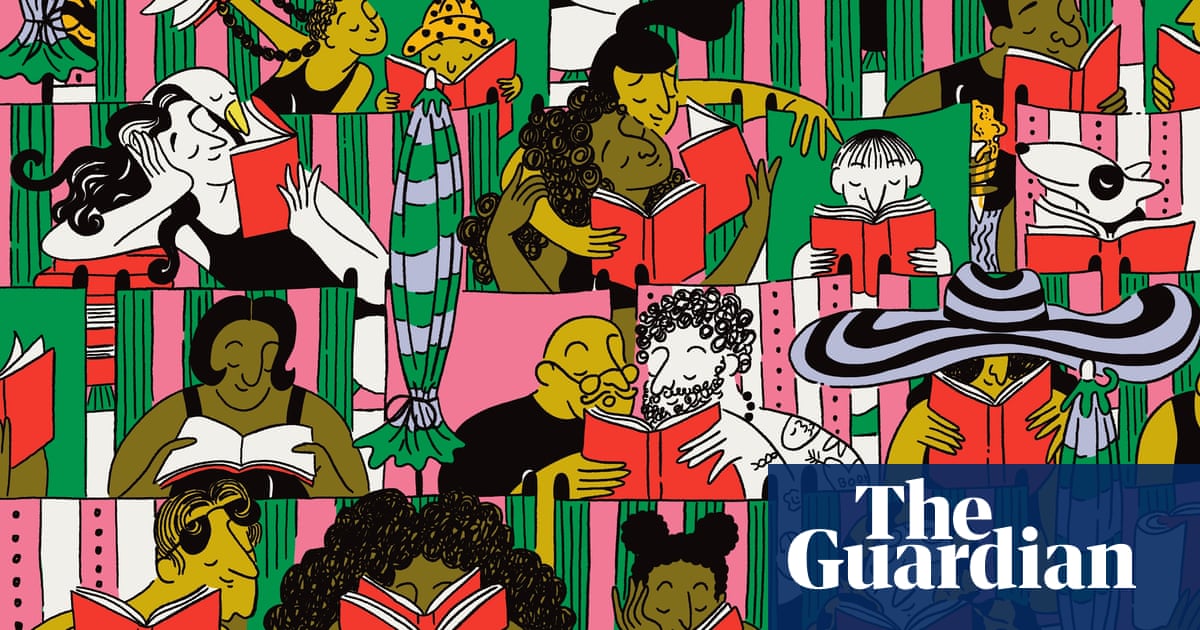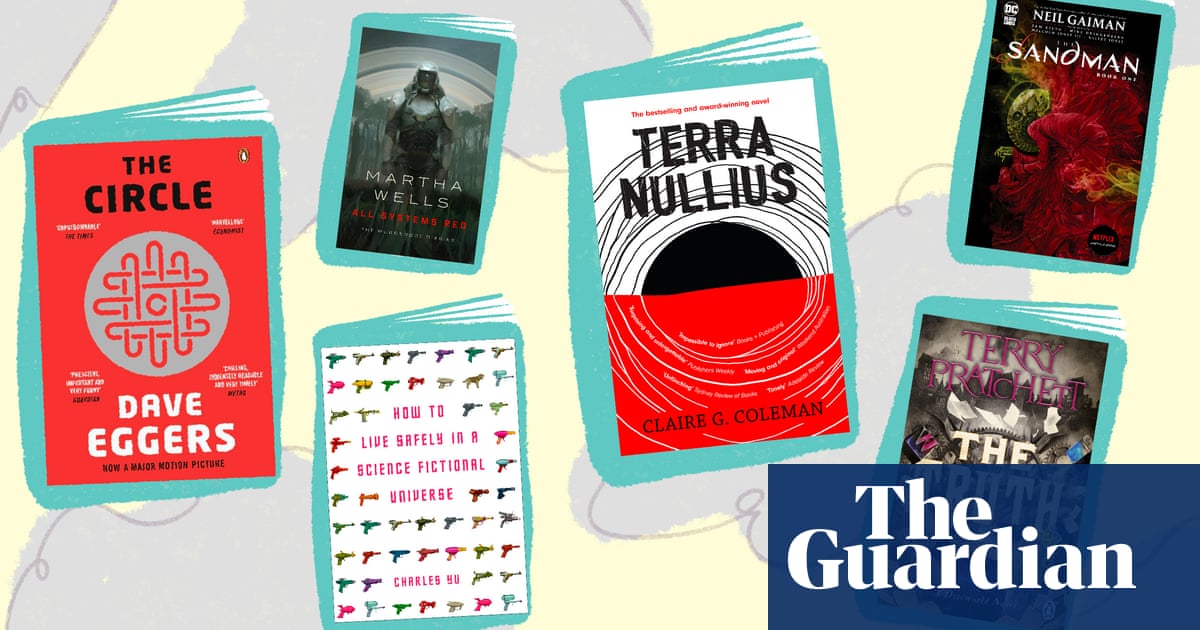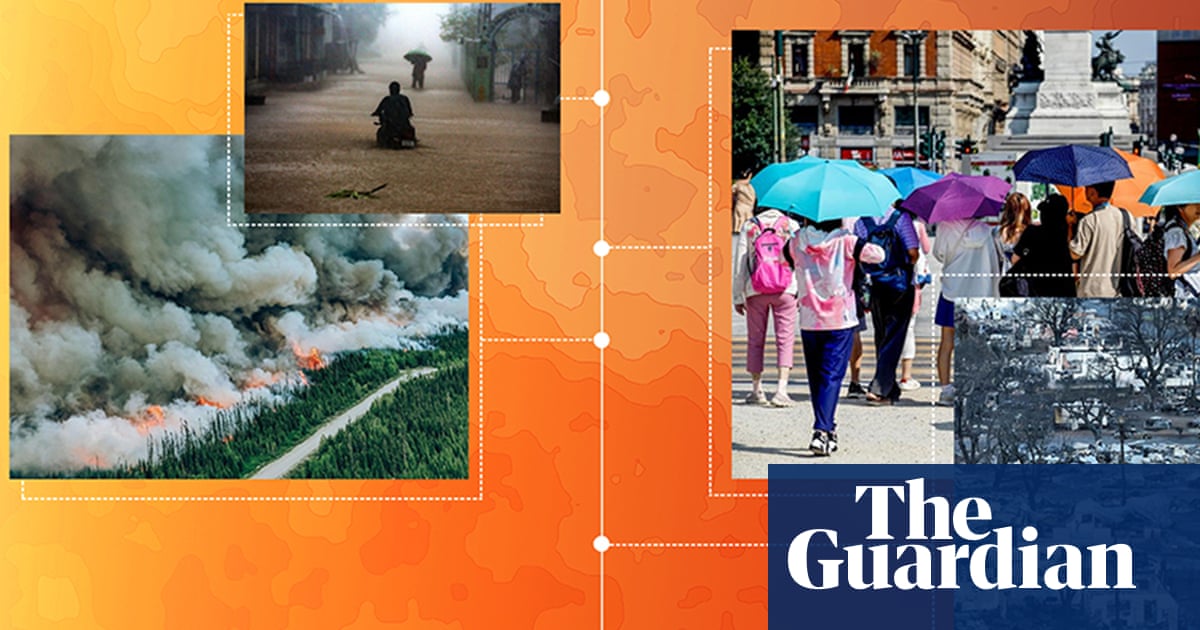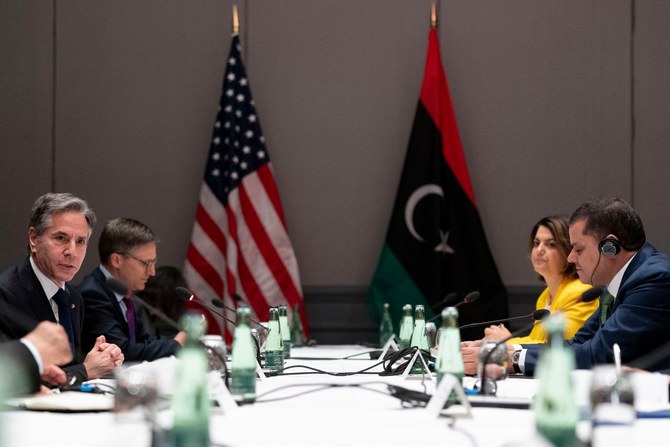
Fiction
The Exhibitionist by Charlotte Mendelson
Longlisted for the Women’s prize, this is a darkly funny portrait of a dysfunctional family bent out of shape over decades by its narcissistic artist patriarch – and of what happens when his wife will no longer squash her own creative energies. Wise, waspish and emotionally astute, it’s addictive reading.
Bad Actors by Mick Herron
Herron is on playful form in the eighth outing for his ragtag gang of demoted MI5 operatives. The Russians are still playing dirty, and a member of a thinktank goes missing, in a skewering of political cynicism and incompetence that features a familiar eminence grise at the heart of government. Fast, funny, furious and worth the admission for the unimprovable line, “Never bring a spork to a knife fight”.
Companion Piece by Ali Smith
Smith follows her seasonal quartet with a sideways look at the harm lockdown did to us all – the loss, sadness, isolation and increased intolerance – that is studded with natural magic and hints on how to close social distance through moments of connection and community.
To Paradise by Hanya Yanagihara
The magisterial follow-up to A Little Life offers three books in one. A fragile, wealthy young man looks for love in a gender-queered 19th-century New York; a young Hawaiian is plagued by childhood memories at the height of the Aids crisis; pandemics shape a bleak future in the grip of totalitarianism. Yanagihara weighs up damage and privilege – social, emotional, political, colonial – in a gripping, immersive ride through alternative Americas.
The Twyford Code by Janice Hallett
The Appeal, about murder in a gossipy amateur-dramatics community, was told through emails; this tricksy but tender follow-up makes clever use of voice transcription. Ex-con Steven has always loved codes and puzzles; now he must solve the mystery of a missing childhood memory, following clues dotted through the books of an Enid Blyton-esque children’s author. There are games within games in this ingenious treasure hunt, but real emotion at its centre.
Glory by NoViolet Bulawayo
In this Zimbabwean successor to Animal Farm, inspired by the fall of Robert Mugabe, the toppling of Old Horse and his wife, Marvellous the Donkey, and the chaos that ensues, are related through a chorus of animal voices. A gloriously rambunctious satire of tyranny, oppression and rebellion, with global relevance.
Vladimir by Julia May Jonas
The wife of an English literature professor disgraced for sleeping with his students finds herself smitten by a beautiful younger colleague in this deliciously dark American debut. A boisterous campus novel with an outrageously acerbic narrator, it delivers uncomfortable truths about internalised misogyny and creative frustration.
Sea of Tranquility by Emily St John Mandel
How does a distant inexplicable event in a Canadian forest link to contemporary New York, and then to a 23rd-century investigation into the laws of physics? An elegantly told yarn from the author of Station Eleven encompasses time travel, pandemics, moon colonies and the tribulations of author tours.
The Candy House by Jennifer Egan
Would you upload your memories if it gained you access to other people’s? The companion novel to A Visit from the Goon Squad is a clever, endlessly inventive exploration of our increasingly connected, surveilled society and the individual yearning for privacy and meaning.
You Made a Fool of Death with Your Beauty by Akwaeke Emezi
The multitalented Emezi has written a thoroughly modern beach-read romance, featuring deep traumas, forbidden love, brilliant friendships, high-life adventures and plenty of raunch.
Young Mungo by Douglas Stuart
The follow-up to the Booker-winning Shuggie Bain again focuses on a gay boy growing up in an impoverished, oppressive Glasgow. Mungo finds love and hope across the religious divide in a fervent, gritty and emotionally engrossing novel.
Wrong Place, Wrong Time by Gillian McAllister
How can you prevent a murder that’s already happened? In this page-turning time-loop thriller, a woman watches her beloved teenage son knife a stranger in the street – and then wakes up on each new day further in the past, searching for clues to his motivation and a way to change the future. An intelligent puzzle full of heart and good sense.
Trespasses by Louise Kennedy
This exceptional debut novel, the story of a secret affair in 1970s Belfast between a young Catholic and an older married Protestant, illuminates ordinary lives in extraordinary times. Kennedy brings a sure, light touch to devastating material.
Reward System by Jem Calder
Dating, drinking, working, floundering … Precarious young lives in thrall to the algorithm in these up-to-the-minute tales from an impressive new voice.
Amy & Lan by Sadie Jones
A child’s-eye view of an experiment in living, in which city families band together to set up a rural smallholding. Jones brilliantly ventriloquises Amy and her best friend Lan, growing from young kids into teenagers. She conveys their passionate attachment to the freedom of their unconventional upbringing and deep connection to nature, along with the adult doubts and betrayals happening off stage.
Here Goes Nothing by Steve Toltz
A cynical unbeliever finds himself in the afterlife; meanwhile, back on Earth, his murderer is cosying up to his widow and a pandemic threatens civilisation itself … The latest novel from the author of A Fraction of the Whole sizzles with black comedy and anarchic energy.
The Anomaly by Hervé le Tellier, translated by Adriana Hunter
A plane and all its passengers somehow duplicate after in-flight turbulence. So who, and what, is real? This high-concept SF thriller is enormous fun: a French prize winner spiced with Oulipian theory and literary in-jokes, riddling away at existential questions in the guise of a breakneck page-turner.
Again, Rachel by Marian Keyes
A quarter of a century on from Rachel’s Holiday, this witty sequel reunites readers with Keyes’s much-loved heroine as she explores the trials and transformations of midlife.
Fight Night by Miriam Toews
Excluded from school for scrapping, nine-year-old Swiv must care for her troubled, pregnant mother and her irrepressible grandmother – and accept their care for her, however infuriating, in return. As ever, Canadian novelist Toews swirls together tragedy and humour in a love letter to spirited women.
An Olive Grove in Ends by Moses McKenzie
A young Black Bristolian is determined to escape inner-city poverty and shut-down expectations: but will drugs, violence, faith or love be the route to fulfilment? A gripping, full-octane debut told with flair and style.
Homesickness by Colin Barrett
It’s been eight years since the prize-winning Young Skins, but this second short-story collection is worth the wait. Funny, devastating, slow-burning, these understated tales of misfits and misadventures in smalltown Ireland are written with a casual grace.
I’m Sorry You Feel That Way by Rebecca Wait
Toxic mothers, absent fathers, angry sisters and enraging brothers – this sharp, wise comedy explores difficult family dynamics, from all-too-relatable emotional patterns to the inexplicable agonies of mental illness; yet it’s also one of the funniest novels you’ll read this year.
Love Marriage by Monica Ali
Clashes of culture, personality, expectations: this is a warm and witty panorama of modern Britain from the author of Brick Lane, seen through the rocky engagement of two doctors and the explosive combination of their very different families.
Our Country Friends by Gary Shteyngart
By turns poignant, absurd and darkly comic, Shteyngart’s “lockdown novel” is always – like the Chekhov it riffs on – deeply human. The group of friends that flee to a house in upstate New York aim to elude the virus, but they can’t escape the entanglements and rivalries that have defined their relationships – and are brought into sharp relief by the arrival of a famous stranger.
The Secret Lives of Church Ladies by Deesha Philyaw
Nominated for a national book award in the US, these touching short stories focus on the sex lives of various Black women in the southern US, along with all their desire, shame and fear. Philyaw expertly treads the line between humour and heartbreak in stories you’ll want to wolf down.
Nonfiction
The Expectation Effect: How Your Mindset Can Transform Your Life by David Robson
Does worrying about dementia make you more likely to get it? What if stress isn’t the problem so much as the fear of what it might be doing to us? Robson surveys the latest counterintuitive research on how our expectations shape us – with tips on how to apply its insights to our own lives.
The Journey of Humanity by Oded Galor
In an age of seemingly relentless bad news, economist Oded Galor provides an antidote to doomscrolling. His faith that our future is relatively rosy is grounded in data about economic development that suggest technological progress and declining fertility mean that not only will we be able to feed the world, we’ll soon be able to fix it.
White Debt: The Demerara Uprising and Britain’s Legacy of Slavery by Thomas Harding
Harding’s ancestors benefited from the slave trade, but were also victims of Nazi persecution. “If I was willing to identify as a victim in my father’s family, to receive reparations from the German government, then surely I had better understand Britain’s role in slavery,” he writes. His book shines a light on a pivotal moment in colonial history.
How Civil Wars Start: And How to Stop Them by Barbara F Walter
A chilling warning from a leading US political scientist. Looking around the world, Walter delineates the tell-tale signs of anocracy, a transition stage between democracy and autocracy that nation states enter before civil war begins. America, she warns, is edging perilously close.
Reality+: Virtual Worlds and the Problem of Philosophy by David Chalmers
A brilliantly engaging philosopher tackles the question of whether or not we’re living in a simulation, and asks if that would even matter: the virtual worlds created by computers, he argues, could be just as fulfilling and meaningful as “real” life.
Everything Is True: A Junior Doctor’s Story in a Time of Pandemic by Roopa Farooki
A searing account of the first 40 days of the UK’s pandemic lockdown from a first-hand witness. Farooki, a novelist, finished medical school a matter of months before coronavirus emerged – and found herself on the frontlines of an unprecedented medical emergency.
Super-Infinite: The Transformations of John Donne by Katherine Rundell
Donne broke new ground writing about sex, love, faith and death; this sparkling biography of the metaphysical poet turned preacher illuminates an era of plague, persecution and great existential change.
The Go-between: A Memoir of Growing Up Between Different Worlds by Osman Yousefzada
A beautifully observed memoir of growing up in a conservative Muslim community in Birmingham, in the 1980s. As a child, Yousefzada has access to secret worlds: watching his mother sew in a back room of their house was, he says, “like watching a magician”. He grew up to design dresses for Beyoncé and Lady Gaga.
Burning Questions: Essays and Occasional Pieces 2004–2021 by Margaret Atwood
Atwood’s third volume of essays begins in 2004 and runs until 2021. Her panoptic gaze takes in the aftermath of 9/11, the Obama years, the financial crisis, Trump, #MeToo and the Covid-19 pandemic, the writing shot through with wisdom and wit.
Bitch: A Revolutionary Guide to Sex, Evolution and the Female Animal by Lucy Cooke
Is the female of the species more demure than the male? Not according to zoologist Lucy Cooke, who surveys the extraordinary sexual behaviour of myriad animals, from lemurs to insects, upturning decades of scientific bias in the process.
The Man Who Tasted Words: Inside the Strange and Startling World of Our Senses by Dr Guy Leschziner
Neurologist Guy Leschziner vividly describes what happens when our senses malfunction, as in the bizarre case of James, who tastes a full English breakfast when he hears the words “Tottenham Court Road”. Just as compelling, though, is the science behind everyday sight, smell, taste, hearing and touch. A latter-day Oliver Sacks, Leschziner brings the strangeness of our human faculties to life.
The Palace Papers by Tina Brown
A rollicking ride through the last few decades of intrigue and scandal in the house of Windsor, based on more than 100 interviews with courtiers and assorted other subjects. Even die-hard republicans will find Brown’s pacy prose and juicy insights into the personalities at the heart of this bizarre institution difficult to resist.
The Island of Extraordinary Captives: A True Story of an Artist, a Spy and a Wartime Scandal by Simon Parkin
As a result of Britain’s policy of internment during the second world war, a clutch of European intellectuals were thrown together in the unlikely surroundings of the Isle of Man. There they instituted an informal “university”, with lectures on Greek philosophy, Shakespeare and the industrial use of synthetic fibres. Parkin follows the young German-Jewish refugee Peter Fleischmann as he navigates this strangely rarified world.
Metaphysical Animals: How Four Women Brought Philosophy Back to Life by Clare Mac Cumhaill and Rachael Wiseman
Oxford during the second world war was a crucible of a new kind of philosophy – and its greatest exponents were female. Mac Cumhaill and Wiseman tell the story of the work, life and loves of Elizabeth Anscombe, Iris Murdoch, Philippa Foot and Mary Midgley, who sought to bring a new emphasis on human values to their field.
Out of the Sun by Esi Edugyan
Edugyan’s elegant essays on Black identity and representation deal in empathy and nuance rather than polemic. She considers Marie-Joseph Angélique, the enslaved woman accused of burning down Montreal who is now said to haunt it, the questions raised by Rachel Dolezal’s claim of “transracialism”, and artist Kehinde Wiley’s portraits in the grand European manner, which centre Black people rather than white aristocrats.
In the Margins: On the Pleasures of Reading and Writing by Elena Ferrante
In a series of essays, the famously elusive author of the Neapolitan novels sheds light on her literary development, from her school notebooks onwards. At first she strives for realism, seeking to render her mother’s aquamarine ring, for example, as purely and directly as possible. Eventually, through reading, she comes to understand that “the teller is always a distorting mirror”.
Portable Magic: A History of Books and Their Readers by Emma Smith
Smith explores the physicality of books through the ages – “bookhood”, as she puts it – in this homage to the tactile pleasures of reading. From Madame de Pompadour’s insistence on being painted against a backdrop of books (an early example of the shelfie), to Joe Orton and Kenneth Halliwell’s witty defacement of covers in their local library, it is filled with historical nuggets.
The Premonitions Bureau by Sam Knight
One of the eeriest books of the year tells the story of John Barker, a psychiatrist with an interest in the paranomal. In the aftermath of the Aberfan disaster, which various people claimed to have foreseen, Barker solicits premonitions from members of the public to see how many come true. A number of “seers” do seem to have uncanny abilities – which gives Barker pause when one of them begins to make ominous predictions about his own fate.
Homelands: The History of a Friendship by Chitra Ramaswamy
Sent on assignment to interview 97-year-old Holocaust survivor Henry Wuga, journalist Chitra Ramaswamy is fascinated by his past, and the two become firm friends. The resulting memoir, which tells Ramaswamy’s own story, too, is an exploration of migration, belonging and what constitutes a home.
I Heard What You Said by Jeffrey Boakye
Drawing on his experience as a teacher, Jeffrey Boakye shows how schools have consistently let down Black boys and girls, leaving them disillusioned and demotivated. But Boakye also argues that the system short-changes all students by failing to prepare them for life in a multicultural society. His prescription is a form of radical listening: to hear what makes pupils feel included and reframe teaching around it.












